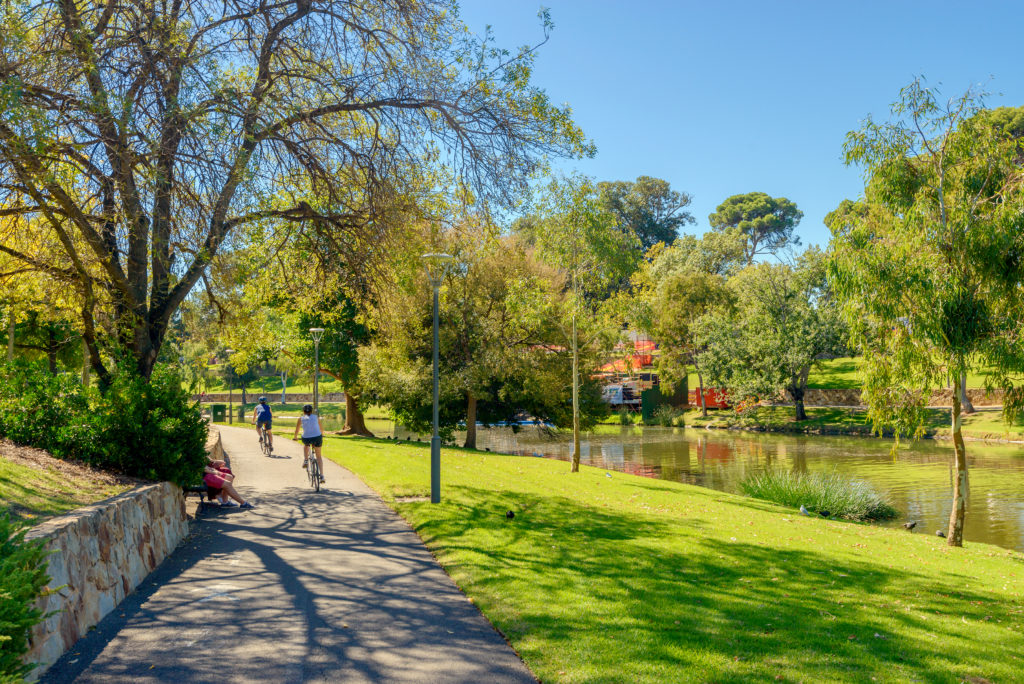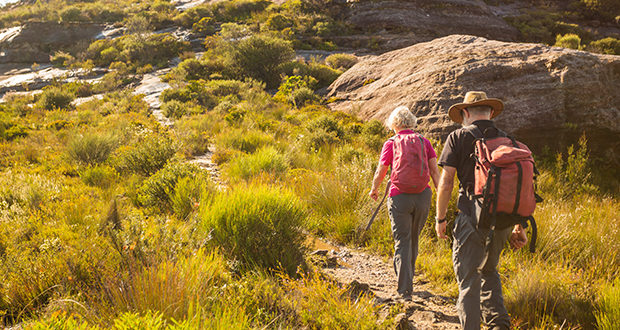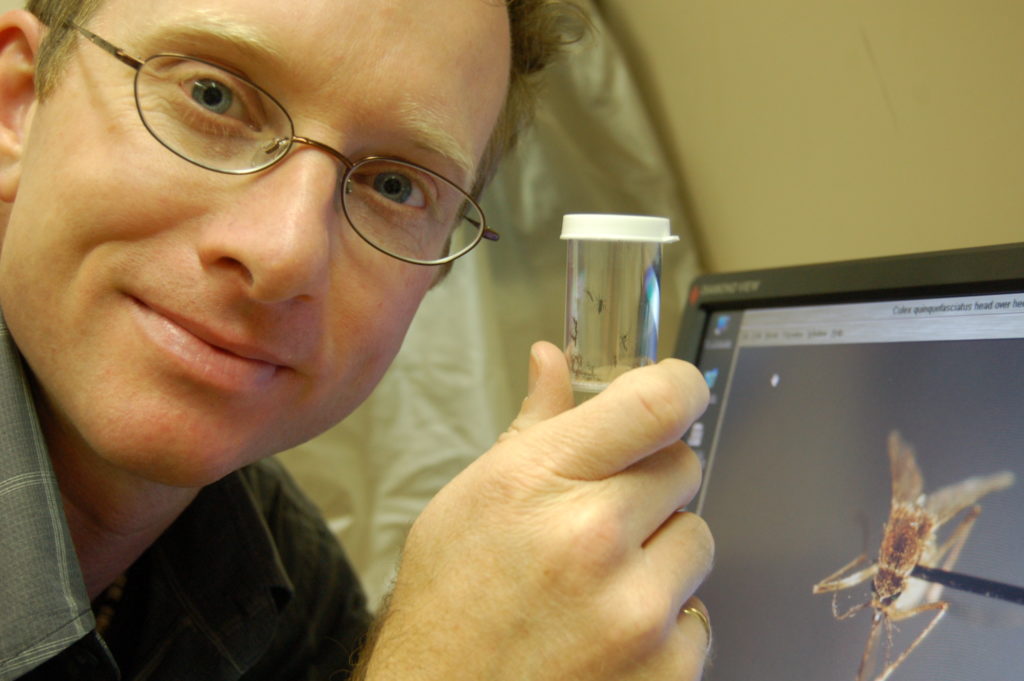In the rehabilitated wetlands and green reserves around metropolitan Adelaide, a group of older people, uni students and researchers embarked on a mission to embrace the great outdoors.
The expeditions were part of a trial run by the University of South Australia to explore the physical and social benefits of engaging in citizen science for individuals aged over 50.
Mary Crawford, a retired agriculture consultant, said she volunteered for the program to meet new people and to continue nurturing her love for nature conservation.
“Because I live by myself, even though I'm fairly active, just going along to a Saturday morning activity and talking to like-minded people, exploring together, was really, really valuable,” she said.
“Just going and talking to other people about, 'Oh, look at that, isn't that marvellous? What is it?' and working out what it is.
“It changed my view of a park or an area because I'd see the trees, I'd see the birds, but I wouldn't necessarily see a fly or a wasp or other parts of the environment.”
Over eight weeks, the group met with an environmental researcher guide to investigate the local flora and fauna in an urban park or nature reserve.
Participants were encouraged to photograph and record their observations onto the iNaturalist app, where their discoveries would be shared with over a million scientists online.
Finding new parks and wildlife squared away on the city's doorstep was a memorable way to connect with her community, said Mary, who moved to Adelaide from the Eyre Peninsula.
“It was just such a diverse little community of vegetation we discovered, a whole range of different lizards and spiders and other plants and insects that were there and we were adding to our database,” she said.
“The other times were along the River Torrens when we were at St Peter's Lagoon wetlands area.
“I saw eastern water skinks which I've never seen before and they were just beautiful, and it just made you smile.”
Since the program ended, Mary, 69, has continued to observe and monitor local species in her backyard and during her weekly bushwalks, logging over 500 posts on the app to date.
“I will go out specifically for a walk and, even in my own garden, record activities on the app or take photos and come home and download them onto my computer.
“It's not just taking a photo for my sake now, it's a matter of taking a photo and documenting something for science, even though I'm not a scientist.”
Funded by the South Australia Office for Ageing Well, the research project seeks to investigate how people can form and maintain meaningful connections in later life.
Close to 40 per cent of South Australian citizens are aged 50 and over.
According to a statewide survey, poor neighbourhood walkability and lack of cultural connection contribute to higher levels of loneliness and social isolation in older adults.
Mary said the greatest gift the science project offered her was something to look forward to, and it gave her new ways to engage with her three grandchildren.
“I’ve been explaining it to my grandchildren who are probably a little bit too young, like four and three and two, but showing them the pictures of the things that Nanna's found in the conservation park, I just think it's a brilliant way of teaching and educating the next generation about biodiversity, about looking after our environment and cherishing what we've got.”

As the two-year trial draws to a close, researchers are now in the final stages of looking at how the program impacted the 150 participants' overall wellbeing.
Craig Williams, a public and environmental health scientist at the University of South Australia, said that positive reactions to the study suggest improvements in social and emotional health.
“We've got some early indications that physical activity does tick up slightly when people do this," he said.
“So not just the activity of actually doing the walks, of course, but just their daily average activity.
“The other thing is we believe is there's a decrease in loneliness.”
Immersion in nature may not only be an antidote to stress, said Williams, but can promote individual responsibility over the health of the ecosystem.
As elderly people are more vulnerable to the adverse health effects led by climate change, nature programs may be a potential solution to spur meaningful action.
“By involving people in environmental study, you not only get information about the environment,” said Williams.
“But people become better environmental stewards and so they take the decisions they make in their lives more towards protecting the environment.
“They might vote differently, or they might compost more or they might plant, they might try to preserve a tree in their backyard rather than cut it down. All of those little ways.”
Active public involvement in scientific research has grown considerable traction over recent years.
One of the most prominent citizen science projects in Australia, run out of Sydney’s Australian Museum, has people record photos of sick or dead frogs to help researchers log information about endangered species.
According to Williams, the emergence of citizen science could be used to enrich the lives of the ageing population and in turn influence future policy changes.
“If we have the evidence that there's a health benefit, I think it will be easier to convince governments or various jurisdictions of policy and decisions around such programs,” he said.
“Maybe they become embedded, they become part of health, like in what we might call preventative medicine.
“If you run these programmes, you might save money longer term in your health system: that's the idea.”
The University of South Australia research team are currently in talks with the Office of Ageing Well and expect to publish their findings by the end of next year.
Do you have an idea for a story?Email [email protected]
 Aged Care Insite Australia's number one aged care news source
Aged Care Insite Australia's number one aged care news source



What a great project! hope the research can convert this into ongoing programs in all cities.
Anything like this in Sydney?
Regards, Sara